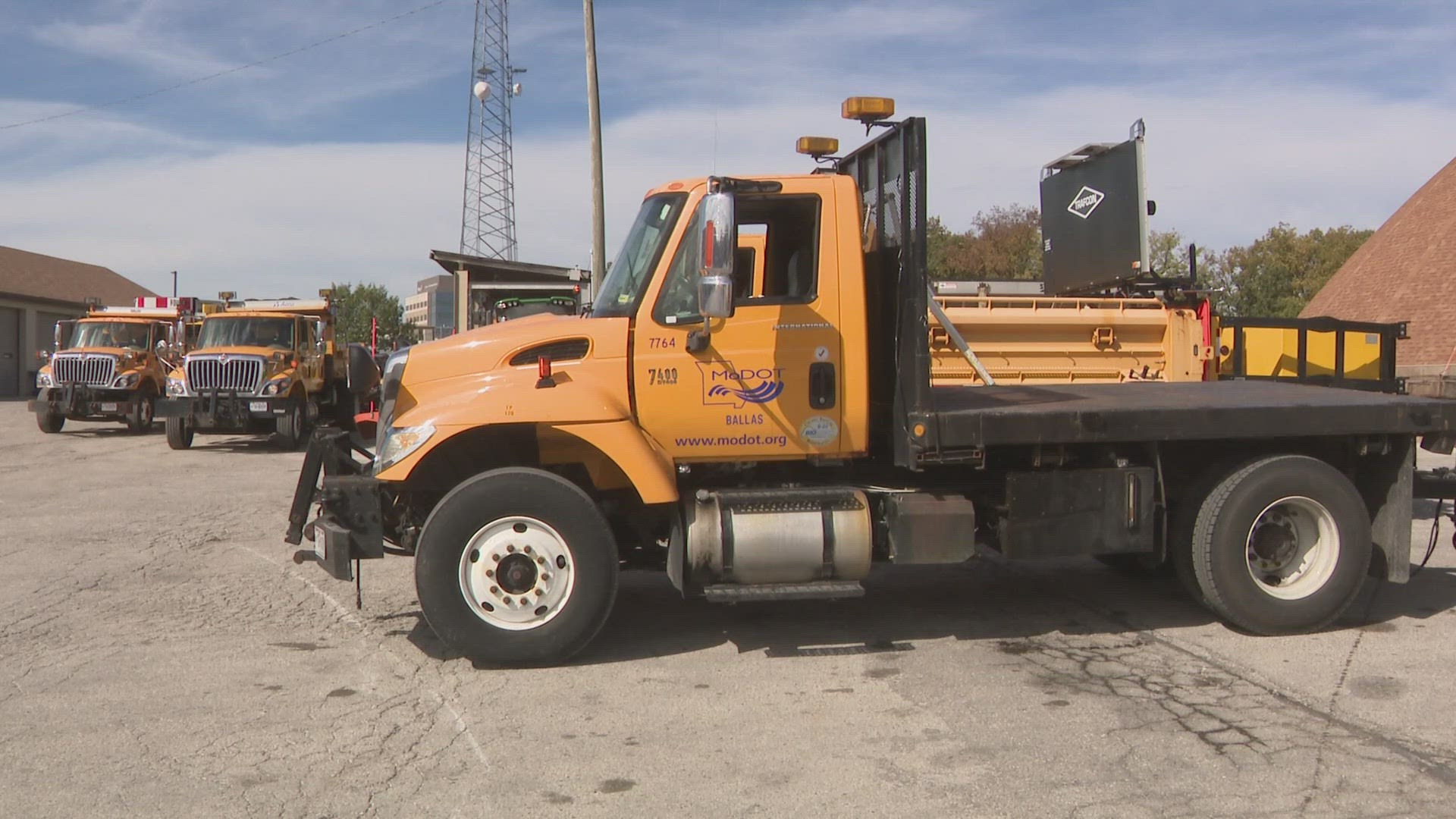ST. LOUIS — Officials responded to numerous crashes across the region as bad weather lasted all Monday morning.
During the peak time of the storm, the Missouri Department of Transportation tracked issues in real time. 5 On Your Side got an inside look at how the MoDOT operations center works.
Bob Becker, MoDOT St. Louis District Maintenance Engineer, said it's an around-the-clock operation.
"We have constant meetings going and communication with these folks and the folks in our emergency operations center to make sure we're dispatching trucks in the proper location in order to do that," he said.
When you're dealing with ice, Becker said, it's not an easy task.
"Ice storms are incredibly difficult. Any untreated surfaces, you're going to have ice on them in the freezing rain conditions," he said.
Those conditions covered the Bi-State Monday morning with crews having to respond to everything from jack-knifed semi-trucks to a Metro bus running into parked cars.
Despite all that, Becker believes, the morning commute still went well.
"We take all the available resources we've got and put them out for storms like this," he said.
Those resources for MoDOT include, not only the crews in the trucks that are treating the roads, but the crews inside St. Louis MoDOT's headquarters in Town & Country.
According to Becker, they monitor a total of 600 cameras across the St. Louis area.
"Especially if there's an accident and we need to get our trucks in to come in behind something or tell them to get off at this exit and things like that, they're valuable," he said.
It's not only the plow drivers and the crews in front of the computer monitors, but Becker said it's also the engineers and everyone in between who helps make storms like this one a little less treacherous.
"We get a lot of experience in our group. We've got a lot of knowledge across the state that we use and rely on," he said.
While the prep work internally goes a long way for smooth and safe roads when icy rain hits, according to Becker, external factors, like the number of people who stayed home instead of commuting, can help too.
"I'd also like to say thank you to everybody out there who stayed home because it was a big deal," he said.
Thankfully the ice will be leaving us soon, but the work never stops.
"We evaluate each storm that comes in and determine how we're going to go and operate," he said.

